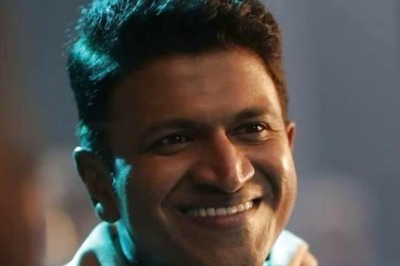
views
New Delhi: Finance Minister Pranab Mukherjee has so consistently disappointed that it is difficult to believe he will keep his word on the fiscal deficit. This year's spending went over-board by nearly a third. That is an appalling record. There have been slippages in the past decade – but never of this magnitude (except in the year of financial crisis). He has made a virtue of honesty by hanging out the linen. He appears contrite and in a mood to make amends. Hopefully, he will not want to go down in history as the man who let down the country.
Many commentators have slammed the budget as pedestrian for numerous petty tax concessions, which have the collateral effect of inflating the self-importance (and nuisance value) of excise and customs officials. But there are some big ideas.
The coming financial year will inaugurate the transition to cash subsidies. Payments will be made directly in to the bank accounts of poor people in fifty districts on the basis of unique identification numbers, 140 million of which have been generated so far. Identifying the poor will not be easy. The wrong people might end up getting the subsidy. That is a risk even with dispensing subsidies in kind. But it will end the wastage involved in, say, moving vast quantities of grain through the hugely inefficient Food Corporation of India for supply through fair price shops. The move to give cash subsidies was rehearsed in trials in Mysore (for cooking gas), Alwar (kerosene) and Jharkhand (rationed grain). The government says old age pensions and wages under the rural job guarantee scheme will also be paid electronically using unique Ids.
The Budget carries tax reforms forward. The Finance Minister has not been as generous as the Parliament's standing committee on finance wanted him to be. That committee, headed by former finance minister Yashwant Sinha, had advised expanding the tax-free slab to Rs 3 lakh and keeping the rate at 10 per cent for income up to Rs 10 lakh. The idea was to exempt people whose contribution to income tax was not proportionate to the expense involved, and also to leave more money in people's pockets to buy things with. But it is a step towards implementing the direct tax code, which should come into force next year. The increase in excise duties by two percentage points (still short of the pre-crisis level by a similar amount) and universal coverage of service tax (except for a small negative list) will take the country closer to a goods and services tax.
The Budget can be faulted for reversing an adverse judgment of the Supreme Court in the Rs 11,000 crore Vodafone tax case through a retrospective amendment. The government says it is within rights to make the legislation. No one questions the government's competence. But the move smacks of legislative arrogance. Extorting money by abusing state power can be deeply unsettling at a time when the country needs foreign investment. Earlier, the government has unilaterally abrogated a contract that Cairn Energy had signed with the state-owned ONGC. Following the Supreme Court verdict in the telecom scandal, foreign investors like Norway's Telenor, UAE's Etisalat and Russia's Sistema had come to grief for investments made in good faith. Their mistake was to have chosen the wrong partners.
This year's subsidies amount to a little over 2 percent of GDP. Next year, the Finance Minister has promised to cut them to 1.76 per cent. Fuel subsidies will be reduced by more than Rs 25,000 crore. He has not spelled out how. Diesel was deregulated last June but the decision has not been implemented. The Economic Survey recommends giving a fixed subsidy per litre of diesel. The coming months may see that advice being followed.



















Comments
0 comment